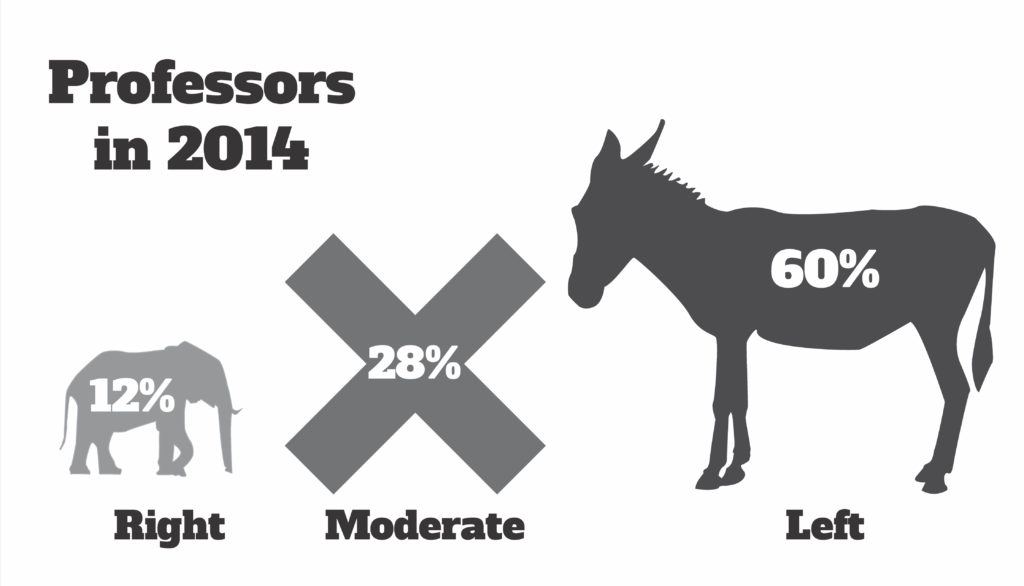
A proposed law in Iowa would require universities to hire a similar ratio of conservative and liberal professors, but Hillsdale College faculty and students said such a policy would not be conducive to a liberal arts education.
The legislation, SF-288, would prevent Iowa’s three state-run universities — the University of Iowa, Iowa State University, and the University of Northern Iowa — from hiring new professors if the new faculty member would “cause the percentage of the faculty belonging to one political party to exceed by ten percent the percentage of the faculty belonging to the other political party.”
The state senator who proposed the anti-partisanship legislation, Republican Mark Chelgren, said in February he hopes it would prevent universities from becoming spaces without free speech.
In 1990, 42 percent of America’s college professors identified as “liberal or far left,” more than double the 19 percent who identified as “conservative or far right,” according to a study published in the Washington Post. Since 1990, liberal dominance on campuses has grown steadily, with liberal professors making up 60 percent of faculty members in 2014, while conservative professor presence had fallen to 12 percent.
The combination of liberal dominance on America’s campuses and violent protests like those at Middlebury College, where a professor sustained minor injuries while escorting a guest lecturer, and the University of California, Berkeley, where demonstrators against Milo Yiannopoulos speaking on campus caused $100,000 in property damages, were enough to lead lawmakers in Iowa to consider legislation to curb partisanship in higher education institutions.
As the rest of America’s schools continue to slide left, however, Hillsdale College’s faculty has remained largely conservative, and this is most likely due to the college’s hiring process. While Associate Professor of Politics John Grant calls the hiring test proposed in Iowa “problematic,” Hillsdale has one of its own.
“I think it’s a very bad idea to ask people, ‘Are you a Republican; are you a Democrat?” Grant said. “It kind of goes against the whole point of liberal education where you have to be interested in the pursuit of truth above all – not primarily committed to a partisan position.”
While Hillsdale does not require faculty candidates to reveal their political leanings, it does require them to comment on the college’s mission statement, a document which binds the college to “our Western philosophical and theological inheritance,” of which the document claims the American Founding is the “clearest expression.”
Senior Amelia Stieren said she supports the college’s requirement.
“I think it only makes sense that Hillsdale would want its faculty to support the mission statement,” Stieren said. “But no law should require universities to turn away qualified candidates just because of their political leanings.”
Senior William Persson, a member of Hillsdale College Democrats, agreed, saying that so long as students are required to sign the Honor Code and comment on the mission statement, it makes sense that faculty should have a similar process.
“While I think it might be beneficial to have more politically diverse faculty in some departments, a good liberal arts education doesn’t depend on the politics of the professor,” Persson said. “It’s an issue that every college faces, but it certainly shouldn’t be sorted out by a law.”

